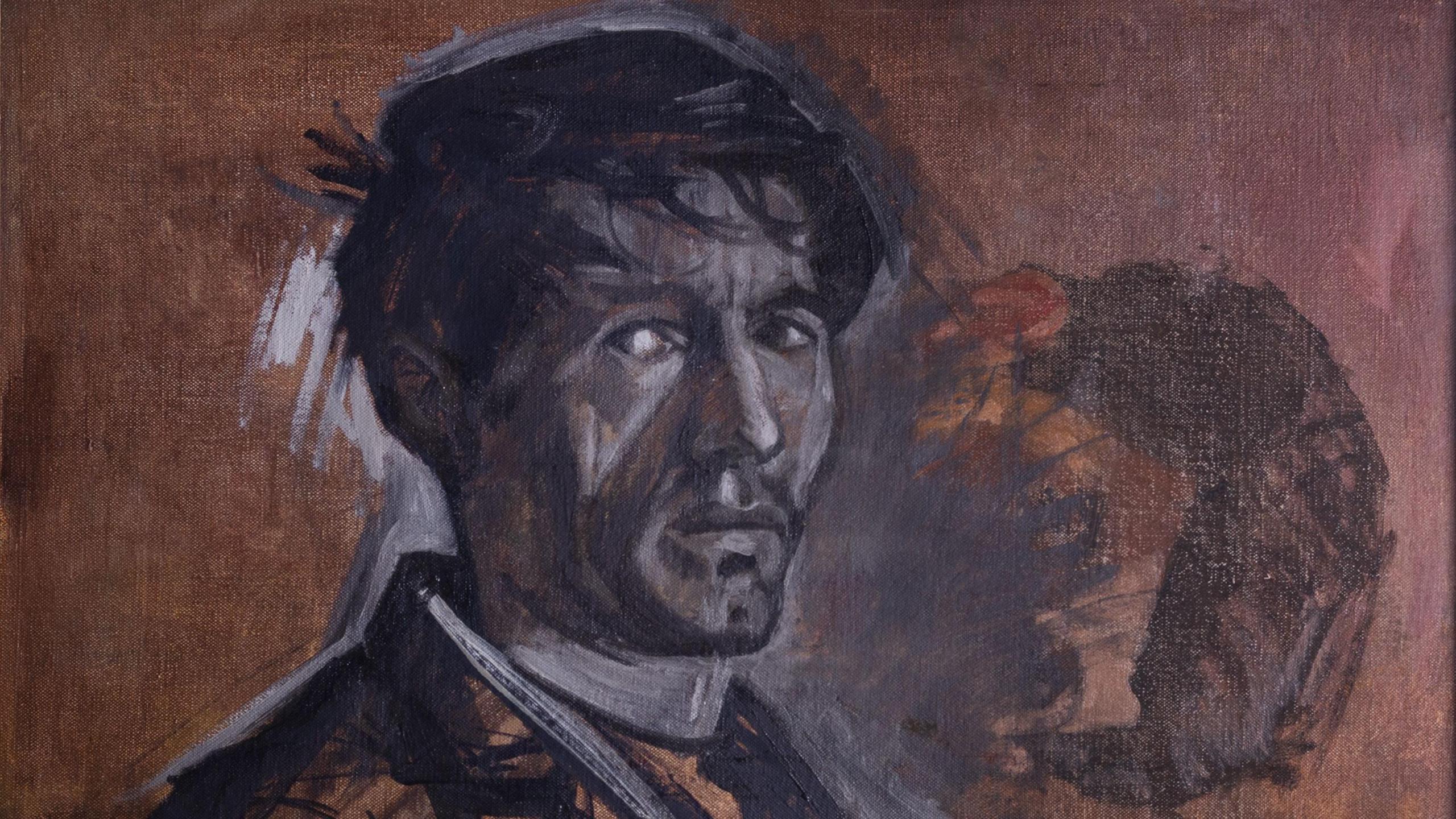'Pitmen Painter work was hanging in my dining room'
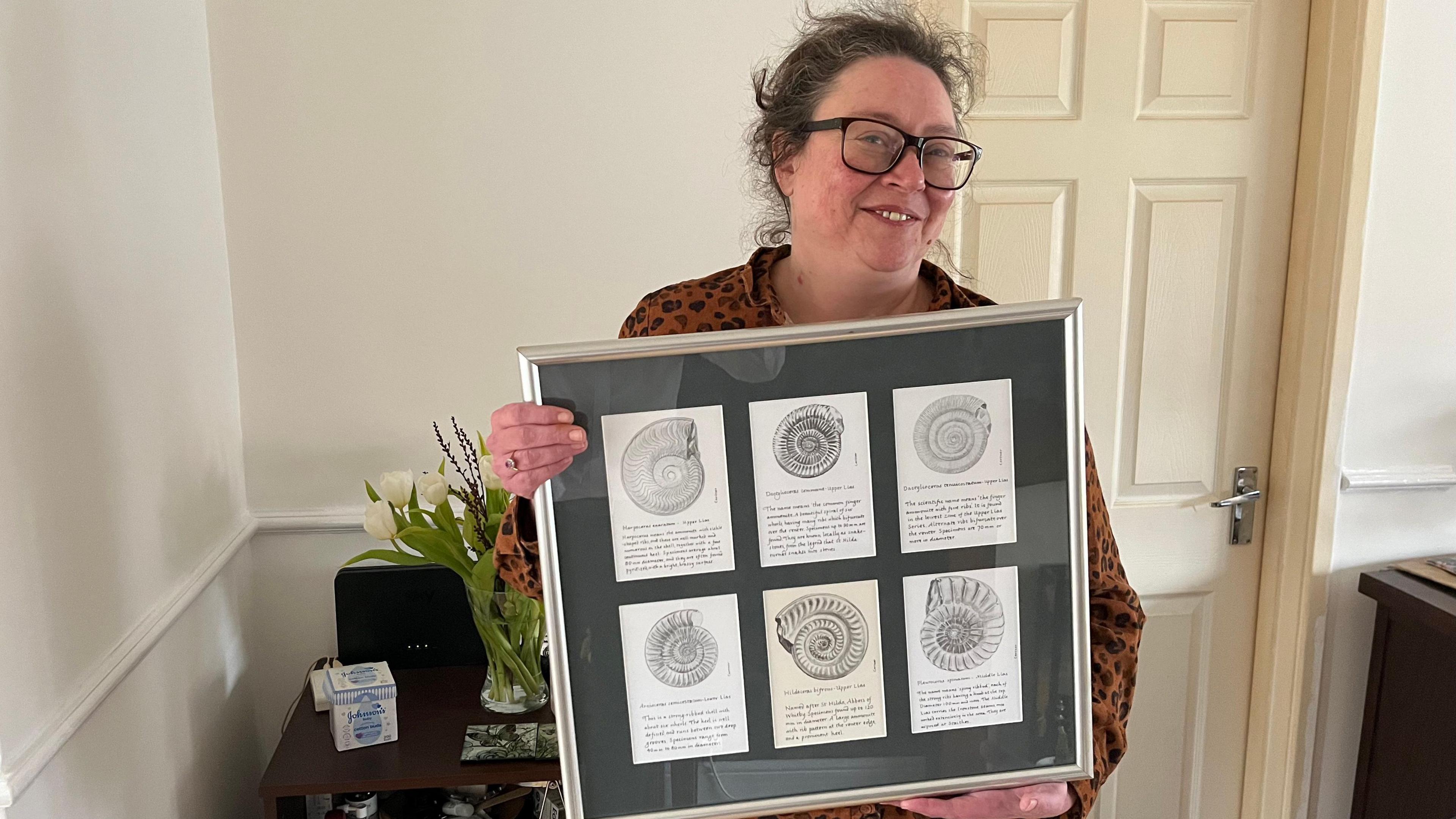
Helen Clay would go fossil hunting with her grandfather William Clay, who would draw their finds
- Published
A previously unknown work of art by one of the Pitmen Painters is now being displayed in a public art gallery after hanging for years on a dining room wall.
Tom McGuinness's painting Fish and Chips was gifted to William Cartner, a university art lecturer who taught McGuinness at night school.
Mr Cartner's granddaughter, Helen Clay, inherited the work in 2019 and surprised collectors when she revealed the painting was in her home in Hylton Castle, Sunderland.
"It was hanging on my wall for five years and people have offered me money for it, but I won't part with it," she said.
"It reminds me of lovely memories and a lovely childhood with my grandparents."
Fish and Chips depicts working class men and women outside a takeaway. Some of the men are eating chips, while a young boy stands outside with a dog.
The painting has now been loaned to The Bob Abley Art Gallery at Spennymoor Town Hall, in County Durham, where it is being displayed to the public.
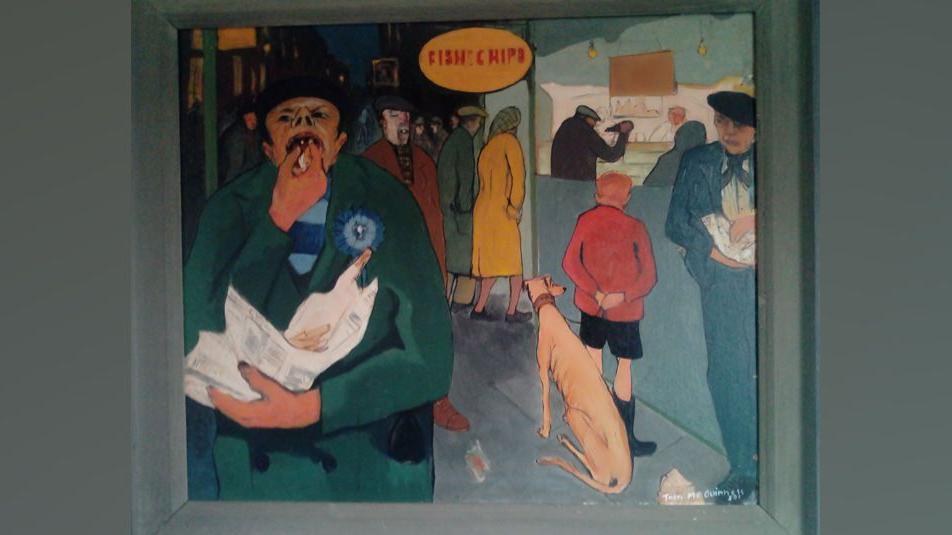
Fish and Chips is an early work by Tom McGuinness and is thought to have been painted in the 1970s
The Pitmen Painters used their art to show what life was like for working-class people during industrial Britain.
The group, which included painters such as McGuinness, Norman Cornish and Fred Laidler, started in the 1930s after they met at a Workers' Educational Association (WEA) class.
McGuinness was born in Bishop Auckland and worked in the coal mines as a Bevin Boy - men who were conscripted to work the mines during World War Two.
A collection of his unseen work recently went on display at the Gallerina art space in Darlington.
Public exhibition
William Cartner met McGuinness when he taught art at a WEA night class and was gifted Fish and Chips by his pupil.
Experts have confirmed the painting is an early work by McGuinness and is believed to be from the 1970s.
John Thompson, The Bob Abley Art Gallery's curator, said he was "staggered" when he visited Ms Clay's home and saw the painting hanging on the wall.
"At the moment we have got it," said Mr Thompson. "It's being admired along with the other two Tom McGuinnesses we have on display.
"The room it is based in is meant to reflect the Spennymoor Settlement, which is where the Pitmen Painters were based."
Ms Clay has fond memories of her childhood with her grandfather, who was born in Haltwhistle, in Northumberland, and went on to work as an art lecturer at Lancaster University and Teesside Polytechnic.
But it was when he began teaching night classes through the WEA that he encountered artists who would later become Pitmen Painters.
As well as McGuinness, Ms Clay also believes her grandfather may have taught celebrated painter Norman Cornish.
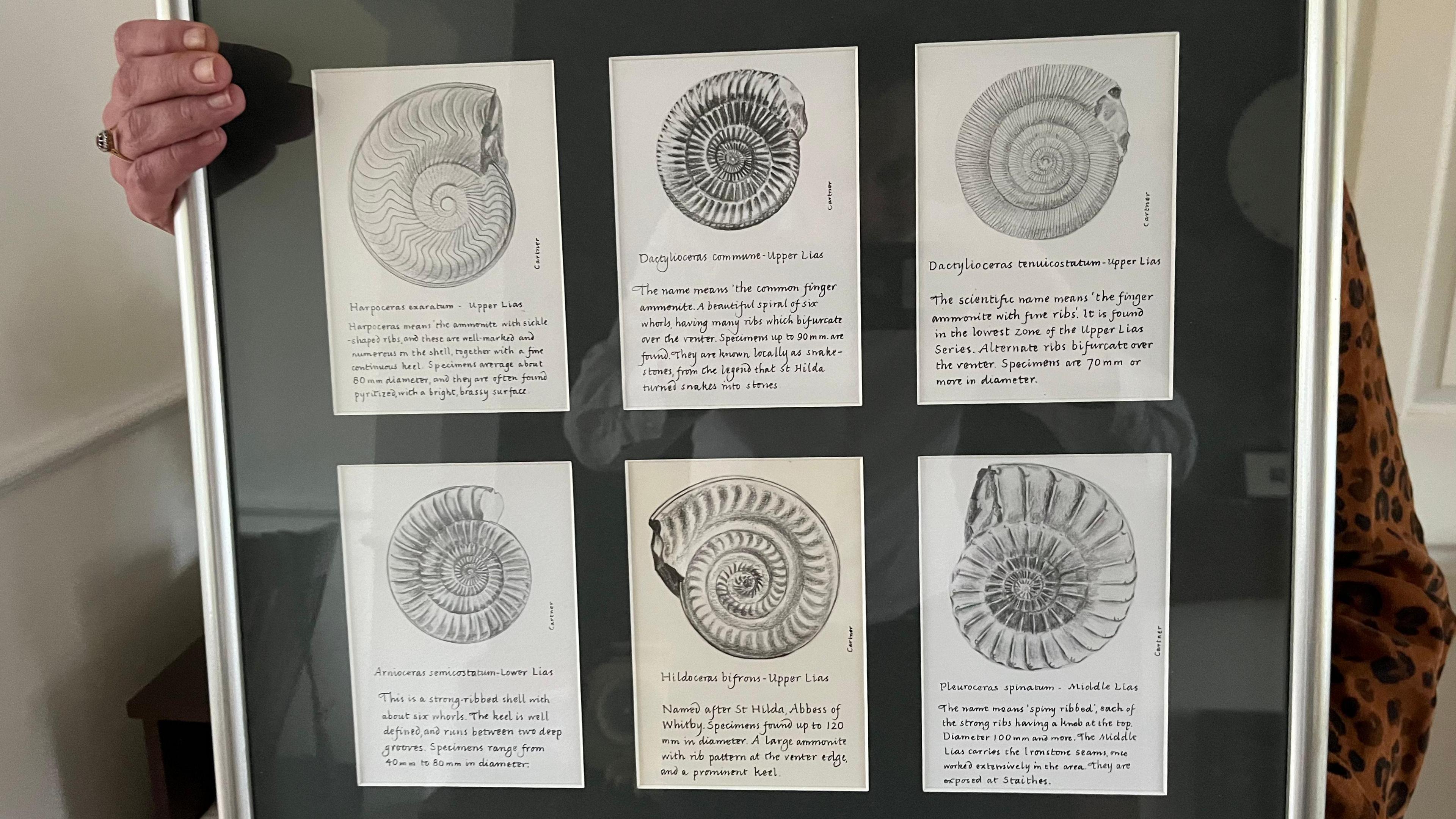
William Cartner would sell his ammonite sketches as postcards for 10p
Mr Cartner was a keen painter, botanist and calligrapher and took his daughter fossil hunting, where they would get to work "banging those chisels".
"I went around fossiling with him on the Cleveland Way all the different little coastal areas like Robinhood's Bay, Skinningrove, Whitby, Sands End, Staithes - we went everywhere."
Mr Cartner would then draw the ammonites they found together and sell his work as postcards for 10p.
When Ms Clay inherited Fish and Chips from her mother, she promised if she had no children to pass the painting on to she would gift it to an art gallery specialising in the Pitmen Painters' work.
Ms Clay thinks her grandfather would approve of their plan.
"Because he taught the Pitmen Painters and because he believed in the power of education to empower working-class people, he would absolutely approve of that," she said.
Follow BBC North East on X, external, Facebook, external, Nextdoor and Instagram, external. Send your story ideas to northeastandcumbria@bbc.co.uk.
Related topics
- Published23 November 2024
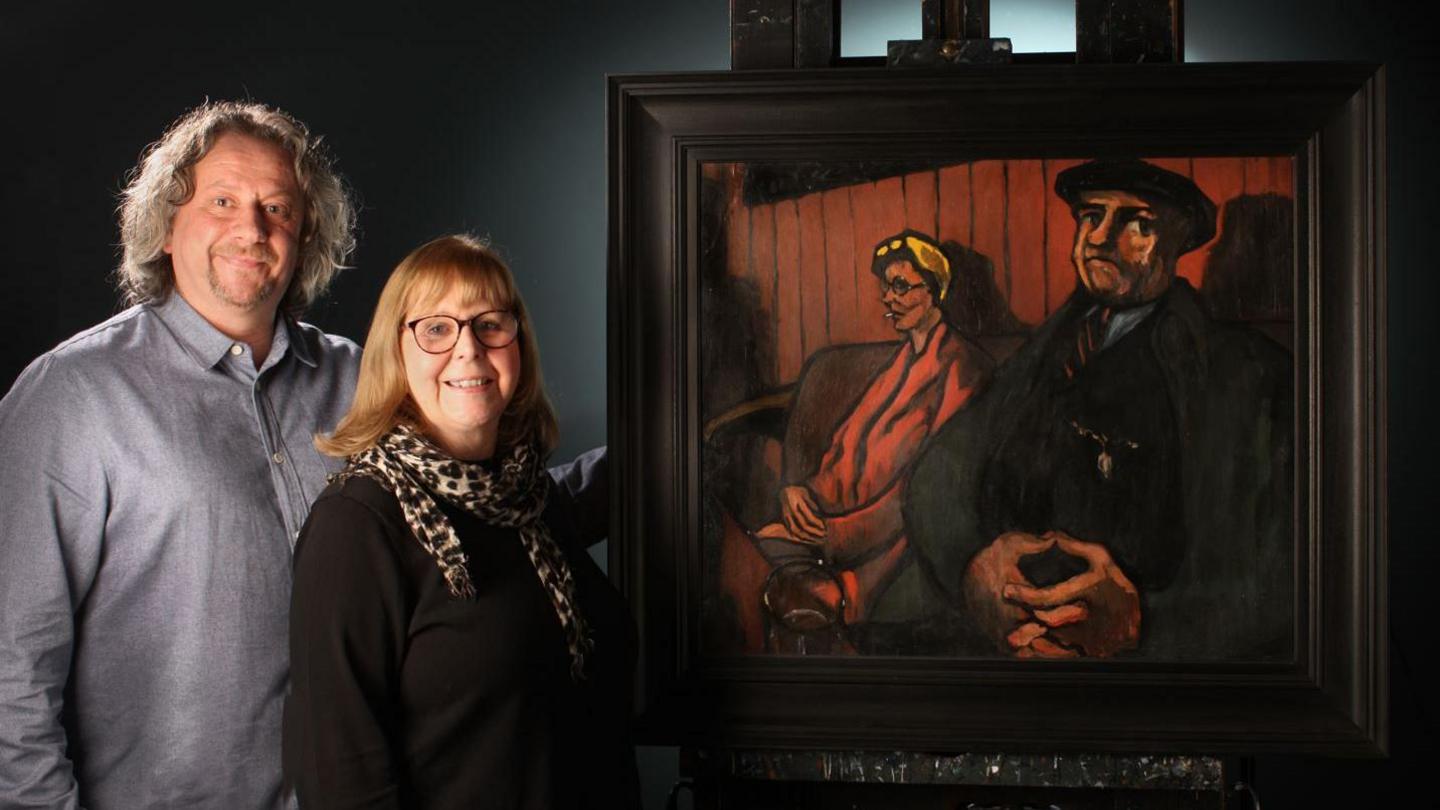
- Published20 July 2024
